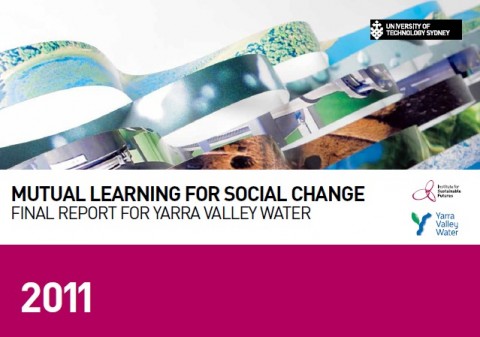Mutual learning for social change - Using social research to support the introduction of urine diverting toilets in the Kinglake West Sewerage Project, Final Report
Mitchell, C., Fam, D., Aabeysuriya, K. (2011)

Published in: 2011
Publisher:
Prepared for Yarra Valley Water by the Institute for Sustainable Futures, University of Technology, Sydney, Australia
Author:
Mitchell, C., Fam, D., Aabeysuriya, K.
Uploaded by:
SuSanA secretariat
Partner profile:
common upload
4364 Views
51 Downloads
Location of library entry
Content - Summary
YVW commissioned the Institute for Sustainable Futures to conduct social research to support its introduction of innovative sewerage servicing technologies as a pilot project at Kinglake West. The social research in parallel over the planning, installation and use of urine diversion toilets, aimed to
• support user engagement with the UDT technology
• monitor progress in acceptability of UDTs by tracking user perceptions
• help articulate organisational learning within YVW in line with YVW’s aspiration “to transfer the learning from Kinglake West, and assist others in the selection of the most sustainable sewerage servicing option at any other location in Victoria.”
The practical contribution of qualitative social research to the project is underpinned by two concepts:
• Innovation in water services infrastructure is necessarily embedded in social systems, with their success or failure critically dependent on the commitment from users. The qualitative social research using direct communication with project participants allowed a deep level of engagement and dialogue with residents, (compared to more ‘standard’ forms of community ‘consultation’/engagement?).
• Qualitative social research has the potential to uncover issues that project designers/planners had not thought of: “Furthermore, particularly at the local level, the discovery is being made, again and again, that people not only care about their environment (natural, social and personal) but also can become ingenious and creative in finding practical, partly technological, ways towards its improvement. Here the quality is not merely in the verification, but also in the creation; local people can imagine solutions and reformulate problems in ways for which the accredited experts, with the best will in the world, are not prepared.”
The following report and appendices documents the process and outcomes of engaging residential users and YVW staff in the trial of UDTs through qualitative social research.
Bibliographic information
Mitchell, C., Fam, D., Aabeysuriya, K. (2011). Mutual learning for social change - Using social research to support the introduction of urine diverting toilets in the Kinglake West Sewerage Project, Final Report. Prepared for Yarra Valley Water by the Institute for Sustainable Futures, University of Technology, Sydney, Australia
Filter tags
East Asia & Pacific English Presentations Urban (entire city)















